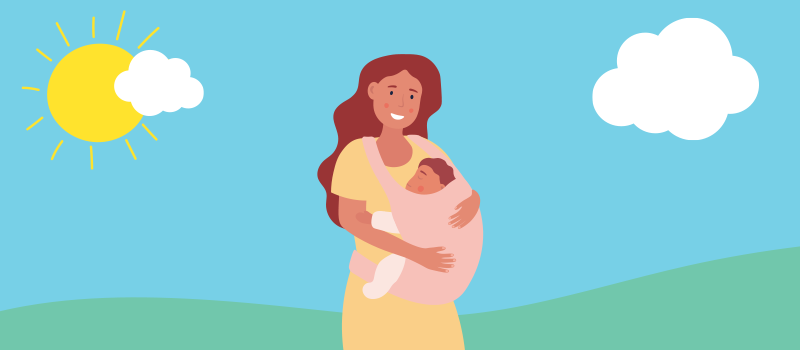Tips for Parents with Children Going Through Puberty

Puberty is a normal part of growing up. It is triggered by hormonal changes and leads to the transition from a child’s body into an adult body capable of reproduction. The release of sex hormones during puberty causes a range of emotional and physical changes. The rapid changes in body shape cause many children to feel embarrassed and can affect their self-esteem. Mood swings during puberty can place a strain on a child’s relationships with a parent or other family members. There are several things you can do to help your child navigate this challenging yet exciting time.
Here are some tips to help you talk about puberty with your child and explain what is happening and why. Remember, this does not have to be a one-time conversation but rather an ongoing dialogue. Your advice will help your teen navigate a difficult time in their life. Choosing the right words will help your child feel comfortable talking about their own emotions and also help them deal with any body image issues once puberty starts.
What are the 5 stages of puberty in a child’s development?
The 5 stages of puberty in a child’s development are called the Tanner Stages. They provide an objective classification and a way of tracking the body changes that occur during early puberty and late puberty.
Some of the physical changes associated with puberty are different in boys and girls. For example, girls undergo breast development and menarche (the start of menstruation - most girls get their first period at around 12 years old). Boys develop facial hair and body odor, start to produce sperm, and experience spontaneous erections and wet dreams.
Boys and girls experience some of the same changes during puberty. For example, changes that are similar in boys and girls include the growth of pubic hair and underarm hair, the development of sexual feelings, growth spurts, oily skin, and acne.
What is precocious puberty and delayed puberty?
Most children go through puberty between the ages of 9 and 14 years. But the timeline for the start and end of puberty is not fixed. Also, not all children go through puberty at the same pace. Changes in the genitals and other body parts can occur earlier or later in some children. Precocious puberty can be defined as physical changes that occur before age 9, and delayed puberty is when they have not occurred by age 15. You should talk to your child’s healthcare provider if you suspect a problem because it could be an issue with the pituitary gland or adrenal glands.
What do you do when your child starts puberty?
You should provide advice and support when your child starts puberty while allowing your child to be more independent. This is a time in your child’s life that can be an emotional rollercoaster for them and yourself. It is a period when your child wants to be more independent and explore new emotions and relationships, yet they still need your guidance. Puberty is also when many young people make their first foray into dating and romantic relationships. These experiences are vital and create a foundation for forming healthy relationships later in life.
How do I prepare my child for puberty?
It’s important that kids understand that the changes occurring in their bodies during puberty are normal. They should also know that it is normal for these changes to happen sooner or later in different children.
Do not wait for the first sign of puberty or for your child to come to you with questions. Be proactive and start having conversations with your child at around age 8. Talk about the physical changes, the growth spurt they will experience, and any body image issues that can arise—this way girls will be prepared for changes like breast development, their first period, and menstruation. Boys will know why they’ve had a wet dream or spontaneous erection, why their voice is deepening, and why they are developing pubic hair.
Kids who know what to expect and understand that their friends will go through the same changes sooner or later are better prepared to handle the challenges of puberty.
How can I make it easier for my child to go through puberty?
Here are some tips on helping your child go through puberty:
Correct misinformation
First, find out what your child already knows. Many children receive sex education at school; your child may know more than you imagined. But pre-teens and teens also have a lot of misinformation gathered from the internet and friends. Correct any misinformation and give your child the facts. Don’t shy away from using the right words for body parts, such as breasts, vulva, vagina, penis, and testes instead of pee-pee and down there. Encourage your child to ask questions and be honest with the answers. If you don’t know the answer to a question, offer to look it up together.
Offer support
If your girl is being bullied because she has developed breasts before her friends or a boy is being bullied because he does not yet have facial hair, help your child understand that pubertal changes and sexual development do not occur at the same pace in all children. Be reassuring. Do not compare your child to others and encourage your child to do the same.
Be role models to your child
Use the conversations about puberty to talk about your values and ideals. Remember, you can be role models for your teens not by what you say but rather by how you act. Do not shame a child for any changes and events related to puberty. Be open and non-judgmental. For instance, if a girl stains her bedsheets during her periods or a boy is concerned about soiling bed linen due to wet dreams, just ask them to put the sheets in the laundry without making a big deal about it.
Respect your child’s privacy
Have the necessary conversations with your teen and then back off. Respect your child’s privacy. Remember that puberty is a time when your child is gaining independence so they may not want to share everything with you. Make sure your child knows you are available for advice and support and that no topic is off limits. Listen when your child talks and avoid telling them how they should feel.
Encourage a healthy lifestyle
Puberty is an important time in your child’s development. Ensure your child makes healthy choices such as eating a healthy diet, doing regular physical exercise, and getting enough sleep.
References:












SOCIAL